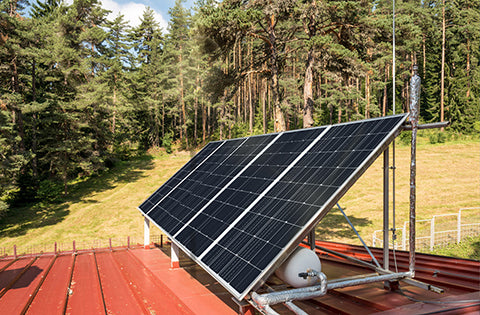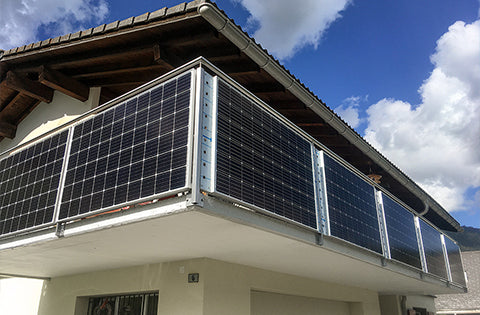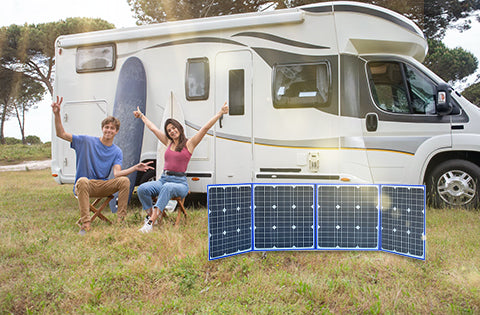With the development of solar industry, many solar manufacturers have produce various kinds of solar panels. And flexible solar panels VS rigid is a question many would-be solar owners have faced in recent years. This innovative technology has changed the game for some solar power systems, but they may not be right for everyone. So how do you know which you should opt for? We`re breaking down the most important pros and cons to know before your next panel purchase.
What is the difference between flexible and rigid solar panels?
As you might expect, the primary difference is whether or not the panels are capable of bending without breaking or suffering serious damage. Traditional rigid panels are stiff to the touch, while flexible ones can be partially twisted or manipulated in a number of ways. This extremely important difference results from their thin plastic construction rather than the glass-encased version used for rigid panels.
What are the pros of flexible solar panels vs rigid?
Flexible solar panels have numerous advantages over their rigid counterparts. The biggest of these is their flexibility, both literally and figuratively. Through their ability to bend, they can be mounted in far more configurations and locations than traditional panels.
Flexible panels are also significantly lighter and lower profile, another advantage when it comes to expanding where you can set them up. In many cases, they’re also easier to install. Some models are as simple as using double-sided tape or other adhesives. You can mount some flexible solar panels in just minutes. This is also a valuable feature for those concerned about drilling holes into their mounting surface, which could let in water and cause damage.
What are the cons of flexible solar panels vs rigid?
One of the biggest cons of flexible solar panels vs. rigid will be apparent as soon as you start shopping. Flexible panels tend to cost significantly more than comparable rigid panels due to the technology required to produce them. This might place flexible panels outside the budget of some would-be solar power users.
Flexible models also have higher long-term costs, as they generally don’t last as long as rigid ones. Owners have to buy new expensive panels more often. In most cases, flexible panels also generate electricity less efficiently, which is a potential concern for users who need every watt.
Because flexible panels are typically mounted directly to the surface they are on, they also have no air gap to help cool them. On hot days the panels can get very hot, and when they do, produce less power. Hot panels can lose up to 20% of their rated output. This heat can also transfer into the surface they are adhered to making whatever they are attached to hotter. This may not be ideal on a hot summer day.
How long will flexible solar panels last?
Several factors determine how long a solar panel lasts, from normal wear and tear to unexpected damage from weather, animals, or other sources. However, flexible solar panels tend to see their primary stress from how they are bent for installation. As a result, owners can expect their panels to last roughly 5 to 15 years. While this may sound like a while, flexible solar panels wear out faster vs. rigid ones. Rigid panels can often operate for 25-40 years under normal conditions.
Do flexible solar panels overheat?
There’s a notable difference in the likelihood of overheating when considering flexible solar panels vs. rigid. However, this is primarily due to the way you mount each type. Flexible solar panels tend to lie flat against the surface they adhere to, exposing them to this radiated heat in addition to their own heat from sun exposure.
On the other hand, the more substantial mounting hardware required to use rigid panels also raises them and allows airflow to cool the bottom of the panels. This typically results in less common overheating. Of course, flexible panels can also take advantage of this cooling if mounted with space. This removes one of their primary benefits: the ability to conform to any shape with a low profile.
How much do Flexible solar panels weigh?
Most flexible solar panels weigh roughly four to five lbs each, with different models varying slightly within this range. That’s far less than traditional panels, which usually weigh between 30 and 50 lbs. This difference can really add up, especially for mobile solar setups or systems with many panels. Therefore, when considering flexible solar panels vs. rigid, those looking for lightweight solutions should opt for flexible ones.
How do I choose between flexible solar panels VS rigid?
The choice of flexible solar panels vs. rigid ones is a personal one that requires a careful assessment of a few factors. These include not only your power needs but also your panel location and, of course, your budget.
It’s crucial to remember the downsides. Flexible panels will cost more than rigid ones, have lower power generation efficiency, and likely need to be replaced sooner. Despite all this, flexible panels can be an excellent choice for those who need to install them in unusually shaped places or who require low-profile panels for mobile use. This is, perhaps, their most valuable feature as it allows many uses that wouldn’t be possible with traditional panels. Those looking to build, expand, or update a personal solar power system should consider all these factors to help them understand whether flexible panels are right for them.
We know that building or upgrading an electrical system can be overwhelming, so we’re here to help. Contact SOLARPARTS now if you need any help!
Twitter: Solarparts Instagram: Solarparts
Tumblr: Solarparts Pinterest: Solarparts
Facebook: Shenzhen Solarparts Inc
Email address: Philip@isolarparts.com
Homepage: www.isolarparts.com






